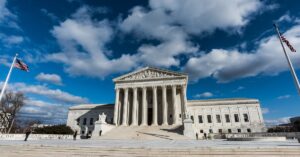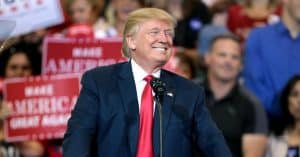Washington election official denies federal voter data request
Hold onto your ballots, folks—Washington’s top election official is drawing a line in the sand against the federal government’s latest power play. Secretary of State Steve Hobbs has flat-out refused a U.S. Department of Justice (DOJ) demand for the state’s voter registration database, citing privacy protections and a lack of legal grounding. It’s a bold stand, but one that’s sparking a fiery debate over state versus federal authority.
On September 8, 2025, the DOJ sent a letter to Hobbs requesting a full copy of Washington’s voter rolls, including sensitive details like names, addresses, birth dates, and even driver’s license numbers or partial Social Security numbers.
This isn’t just a local skirmish—the DOJ has been pressing multiple states since May for similar data, claiming authority under federal voting laws to check for ineligible voters. While some states have complied, others like Maine, Oregon, and now Washington are pushing back hard. They argue this request oversteps federal bounds and risks exposing private citizen information without a clear justification.
Privacy Concerns Take Center Stage
“The information the DOJ is requesting is protected under state law and not subject to disclosure,” said Charlie Boisner, a spokesperson for Hobbs’ office. Well, that’s a polite way of saying “hands off,” but it dodges the bigger question: when does federal need trump state safeguards? From a conservative lens, protecting voter privacy is noble, yet ensuring election integrity feels just as urgent.
Hobbs’ team insists Washington already has robust systems to verify voter eligibility, making the DOJ’s request seem redundant at best and intrusive at worst. They’re leaning on state statutes to shield the data, arguing that releasing it without ironclad legal backing would shatter public trust. It’s a fair point, but skeptics might wonder if this is more about dodging federal oversight than guarding voter secrets.
Boisner added, “Secretary Hobbs is concerned this request represents an overreach by the federal government into Washington’s independent management of its voter database.” Overreach? That’s a word conservatives have been shouting for years about federal meddling, but let’s not pretend states always play fair either—balance is key here.
Federal Authority vs. State Rights Clash
The DOJ claims it’s just doing its job, using voter data to root out ineligibility under the National Voting Rights Act. But without specifics on how the data will be used—say, for immigration enforcement or criminal probes—states like Washington are crying foul. It’s hard not to sympathize with the need for transparency on both sides.
“The letter does not indicate that the information would be used to identify criminals or illegal immigrants,” Boisner noted. If the feds can’t spell out their purpose, why should states hand over the keys to such personal data? This smells like a fishing expedition, and conservatives know all too well how unchecked power can spiral.
On the flip side, Washington State Republican Party Chair Jim Walsh isn’t buying the state’s defiance. “State law does not supersede federal law,” he fired back, pointing to the U.S. Constitution as the ultimate authority. He’s got a point—when push comes to shove, federal rules often win, and ignoring that could land Washington in hot water.
Legal Threats Loom on Horizon
Walsh also floated a wild card, suggesting the DOJ’s request might be a test of Hobbs’ transparency, especially if a whistleblower has already leaked the data. “Will he pass?” Walsh mused. It’s a sharp jab, implying Hobbs might be out of his depth, though it’s pure speculation without evidence.
Meanwhile, the DOJ isn’t playing nice, having already signaled plans to sue non-compliant states like Oregon and Maine. Boisner acknowledged the threat, saying the office is weighing legal options while stressing that a mere request letter isn’t law. It’s a gutsy stance, but litigation could turn this into a costly showdown for Washington taxpayers.
Walsh, ever the activist, is also pushing an initiative to tighten voter registration by requiring proof of U.S. citizenship, like a passport or enhanced license. New voters would need to comply immediately, while existing ones have until November 2027 to prove their status or risk cancellation. It’s a tough policy, but for many conservatives, it’s a no-brainer to secure elections.
Balancing Trust and Accountability
Hobbs remains adamant about safeguarding voter trust, with Boisner emphasizing, “Secretary Hobbs is committed to protecting the privacy of Washington voters.” That’s a commendable goal, but if election integrity is at stake, stonewalling the feds might not be the hill to die on. Conservatives want clean voter rolls just as much as they want privacy—why not find a middle ground?
The tension here isn’t just legal—it’s philosophical, pitting state autonomy against federal oversight in an era where trust in elections is already fragile. For every argument about privacy, there’s a counterargument about accountability, and both sides have merit. Still, if the DOJ can’t justify its data grab, Washington’s resistance feels less like rebellion and more like common sense.
Turns out, actions have consequences, and this standoff could redefine how states and the feds tango over voter data. As the legal clouds gather, one thing is clear: neither side is backing down, and Washington voters are caught in the crossfire. Let’s hope clarity, not chaos, wins the day.




